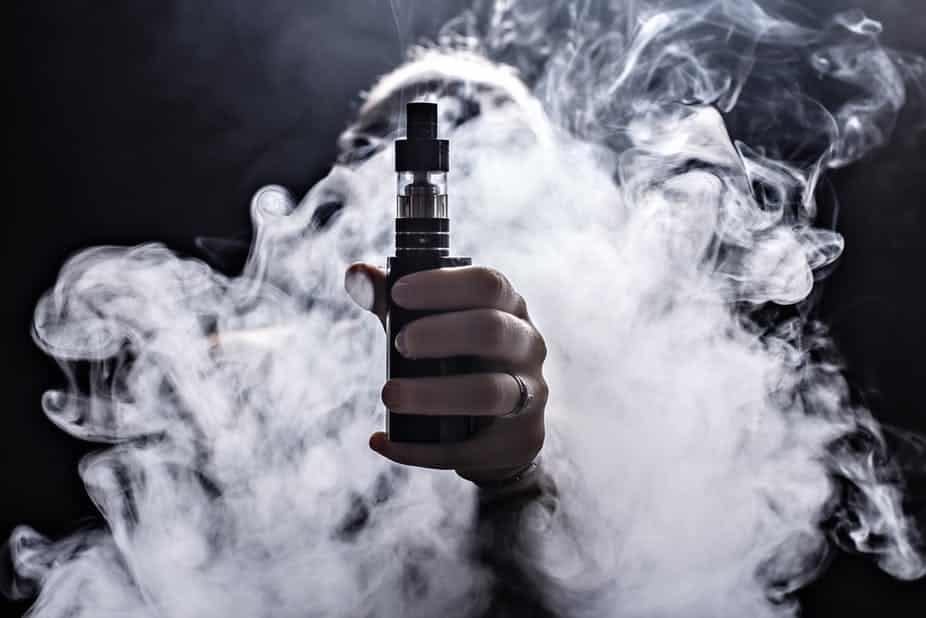Individual therapy can take various forms, but it always involves the patient and a counsellor meeting one-on-one. Counsellors work with patients in a supportive and non-confrontational setting throughout these Individual counselling sessions to assist them in working through issues that are negatively impacting their life.

Individual therapy is also known as psychotherapy, and it encompasses a wide range of techniques such as cognitive behavioural therapy, hypnosis, and psychodynamic therapy. The sort of therapy employed will be determined by the condition being treated as well as the individual’s needs.
It’s a therapeutic tool that allows you to be open and honest with someone who isn’t biased or judgmental. This can be a tremendous relief for people who have been holding their emotions and sentiments within for a long time or for people who feel like they have no one to talk to at home.
You’d be attending talking therapy sessions in a secure setting. It enables you to investigate the problems that have been plaguing your life. The counsellor will act as a sounding board for you and will not judge you or tell you what you should do. They are there to guide and assist you while you strive to identify the underlying issues that contributed to your addiction.
If your loved one needs support dealing with an Alcohol Addiction, contact us today on 0800 999 1083. We can help you by recommending treatment options.
Individual therapy can benefit your life in a variety of ways. Speaking with a counsellor can be a very therapeutic experience when you are ready to overcome your troubles. A professional counsellor has been trained to assist you in constructively resolving your problems. It’s possible that you require assistance in comprehending your thoughts and feelings or that you seek support in changing your behaviours.
Individual therapy is implemented with a wide range of objectives, even though most people believe it is solely for people with mental health concerns or addictions to substances like drugs or alcohol. This can involve overcoming anger issues, marriage challenges, and assisting parents with difficulties.
Individual therapy is critical in assisting people in working through their mental, emotional, and spiritual problems. They may wish to change some areas of their lives, or they may be unable to comprehend certain emotions they are experiencing. The counsellor’s goal is to chat with the patient about these concerns and assist them in healing so that they can learn the skills they need to improve their lives.
The length and frequency of individual treatment sessions will vary depending on your needs and how you respond. You may have sessions once a week for an hour each. Sessions may be held more frequently or for a longer time, depending on your needs. Short-term counselling is sufficient for many people to assist them in moving forward, but for others, therapy will be required over a much longer length of time.
The person in recovery meets with the therapist for an individual therapy session to discuss their recovery path.
The goal of these sessions is for the therapist’s patients to better understand their own identity and their connection with substances.
The therapist must be a licenced mental health professional with extensive experience in the subject. It is up to them to decide what type of therapy will be utilised, when and where the sessions will take place, and what each party’s responsibilities are, among other things.
At the start of treatment, the therapist may ask the person in recovery to take responsibility for making changes in their life. After all, the goal of therapy is to assist the patients in helping themselves.
Just as the individual in recovery bears this burden, the therapist also bears it: establishing boundaries and maintaining confidentiality. The therapist has a moral obligation to maintain confidentiality. That means that, except in extremely limited circumstances, the therapist cannot tell anyone what the person in recovery tells them during therapy.
At the beginning of treatment, the therapist should advise the individual about these recovering facts. They are as follows:
The therapist is not allowed to compromise confidentiality under any other circumstances.
Therapy sessions are usually an hour long and take place once a week. They typically take place at the therapist’s office, although they can take place anywhere as long as it is private in theory.
What happens in each individual therapy session is determined by the therapist’s selected form of therapy.
Individual therapy sessions may cover a variety of themes, including:
At the end of the session, the person in recovery and the therapist may work together to create some goals for the next one. Attending meetings, abstaining from narcotics, or putting in practice a method taught in therapy, are all examples of these types of goals.
Within the context of individual therapy, a variety of psychotherapy procedures are employed. The ones that are employed for you will be determined by your unique situation and the concerns that need to be addressed.

The fact that you have more one-on-one time with your therapist to deal with the difficulties that are unique to you is perhaps the most significant difference between individual treatment and group therapy.
While individual therapy and group therapy sessions might employ comparable approaches such as CBT and ACT, working with a counsellor one-on-one allows you to address concerns in private.
Individual treatment is very beneficial for people who are suffering from several addictions or have a dual diagnosis (addiction coupled with a mental health problem). A dual diagnosis is a complicated situation that requires a more focused and extensive response.
Individual counselling is also good for those who have a hard time interacting in a group setting. If you find group treatment stressful at first, you may benefit from focusing on individual counselling until you feel comfortable discussing your thoughts. You may feel more at ease in group therapy as you progress through the process.
While any counselling therapy for substance abuse treatment is preferable to none, group therapy is often chosen over individual therapy. You’re more likely to be challenged and supported by peers who are also going through rehab in group therapy.
Peer support groups include Narcotics Anonymous and Alcoholics Anonymous, which are 12-step programmes. They might be a beneficial component of your recovery plan. However, keep in mind that they are not exactly the same as group therapy because a certified psychotherapist does not lead them.
When you have depression, bipolar disorder, or any serious mental health problem that requires treatment in and of itself, distinct from your substance use disorder, individual counselling can help.
Residential therapy isolates you from the circumstances that lead to your drug abuse. You’ll be sent to a special institution for a few weeks to months. You’ll learn new habits or skills for sober living while you’re there.
While this method works in the short term, there is little evidence that it helps you stay drug-free for longer than outpatient programmes, which you attend for ranging from a few hours to several hours each day while living somewhere else.
Going from a controlled, inpatient environment straight back to your home, where it’s easy to start using again, may increase your chances of relapse. That’s why it’s crucial to have a transition period under certain controlled conditions (such as sober living houses or halfway houses) to serve as the bridge between rehab and outside independent life. Additionally, residential treatment programmes are costly. They can be expensive, and insurance policies don’t always cover them.
The most common environment for drug and alcohol abuse therapy is outpatient treatment programmes.
Within the scope of individual therapy, a variety of strategies are used. Listed below are a few examples:
CBT is perhaps the most widely used therapy method. It is a type of treatment that focuses on identifying and changing harmful thought patterns, coping methods, and emotional regulation.
CBT aims to minimise bad behaviours, like giving in to cravings, by addressing the negative thoughts that lead to these behaviours.
CBT is a combination of cognitive therapy and behaviour therapy that dates back to the early twentieth century. It is presently one of the most widely used forms of individual therapy in the treatment of addiction.
DBT is a type of treatment that focuses on acceptance and change. DBT was developed in the 1970s to treat suicidal people, but it has now been adopted for other purposes, including substance use problems. The focus of treatment for substance use disorders is on reducing substance use and the behaviours that lead to it, as well as promoting healthy behaviours (such as the formation of strong relationships) that assist the person to avoid consuming substances or behaving in a certain way.
Contingency management is a practice that encourages positive change through a system of rewards and consequences. This is for people that need a little additional motivation to get through their challenges. It’s more commonly used for addiction therapy.
Addiction is a long-term disease. It is highly likely that those who have it will relapse. Once you’ve completed detox, you’ll almost certainly require ongoing therapy, also known as maintenance therapy, which may involve counselling and potentially medication.
This is a technique for learning to tolerate negative thoughts and feelings without becoming overwhelmed by them. With mindfulness, you will learn how to let these feelings come and go.
Motivational interviewing is a technique for overcoming obstacles that impede you from conquering your disorder. Many people suffer from denial, which might impede them from getting better. Your counsellor will use particular tactics to improve your motivation to change during motivational interviewing.
Individual therapy (one-to-one), when applied to the drug and alcohol addiction treatment process, can be very beneficial for recovering addicts.
Don’t go through the process of recovery alone. Treatment providers can answer your questions. Get in touch with one today.
Call 0800 999 1083 today!
Individual therapy is only one part of a successful addiction treatment programme. It allows you to think about your life in new ways and begin rebuilding your relationship with yourself, repairing the damage caused by your addiction. Therapy will assist you in identifying any and all underlying causes of addiction. You’ll be able to visualise how a future free of addiction might appear using this individualised counselling strategy. Addiction can sometimes act as a shield against unpleasant emotions. You may discover that addressing these issues directly through individual therapy with a trained therapist reduces your need for addiction and allows you to focus on rebuilding your life in positive and productive ways.
Individual therapy should be soothing and relaxing. It’s a place where you can begin to explore more challenging emotions. You can expect to learn things about yourself that you weren’t aware of before and express feelings you hadn’t previously expressed. Although it may be challenging at times, you can expect to go at your own pace; please let your therapist know if you have any issues with their inquiries or the themes discussed throughout your sessions. Individual counselling will help you gain a deeper understanding of the problems you’re having and develop skills for dealing with the emotions that may be underlying your addiction.

Individual treatment has a variety of advantages for those in recovery. Some of these have already been mentioned on this page, but here is a more comprehensive list:
Individual therapy has a few limitations, but these are the most significant:
Most of these drawbacks can be overcome simply by attending group and individual sessions. Individual and group therapy sessions are not mutually exclusive; they work quite well together. Both therapies have been shown to be highly effective in treating addiction.
Individual sessions with a qualified expert who walks you through your emotions and helps you think about your problems in new ways are referred to as counselling and individual therapy, respectively. Counselling is sometimes mistaken for a less intense kind of individual treatment, however, this is not always the case. It’s best to inquire about the training and backgrounds of individual treatment centres’ counsellors and therapists.

BACP accredited psychotherapist with 16 years experience working in mental health specialising in psychodynamic person-centred therapies treating those with a range of mental health disorders including anxiety, depression, OCD and Addiction.

Fill in your details and we’ll send you a message via SMS.

No matter where you live, there are drug and alcohol rehab options for you to discover. Treatment providers are waiting to answer your questions. Get started today.

Ever felt that gnawing ache or burning sensation in your gut after a night of drinks? You’re not alone. Stomach pain after drinking is a common complaint, and there are a few reasons why it might happen. Let’s delve into the science behind the discomfort and explore ways to soothe your stomach. The Irritating Truth: … Continued

Cocaine, a stimulant known for its short-lived burst of energy and euphoria, hides a dark side. Behind the initial high lies a dangerous potential for overdose, with severe health consequences and even death. This article delves into the world of cocaine overdose, equipping you with the knowledge to recognize the signs, understand the dangers, and … Continued

Adult smoking habits in the UK refer to how often and in what ways people aged 18 and above use tobacco. This includes everything from smoking cigarettes every day to occasionally lighting up, as well as using other tobacco products. Understanding these habits is important for several reasons: Public Health: Smoking causes many diseases that … Continued

Addiction in the UK is a complex issue that is connected to various aspects of society such as healthcare and law enforcement. It affects people from all backgrounds and has negative impacts on families, communities, and the entire nation. Understanding addiction involves not only looking at the uncontrollable use of substances and repetitive behaviors but … Continued

Don’t go through the process of recovery alone. Treatment providers can answer your questions. Get in touch with one today.
Call 0800 999 1083 today!








